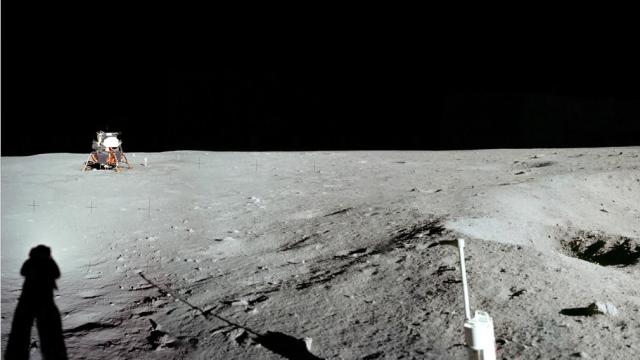The Moon today is not habitable. It’s covered in potentially killer dust and seemingly dry as a bone. But though it seems wild to think, a new perspective wonders: What if the Moon used to be friendly to life?
Scientist Dirk Schulze-Makuch from TU Berlin and Ian Crawford from Birkbeck, University of London speculate that, while it might seem “outrageous”, recent results show that the Moon is wetter than scientists have previously thought — so maybe, once, it had the conditions for life.
They’re not saying it did, of course. “Whether life ever arose on the Moon, or was transported to it from elsewhere, is of course highly speculative and can only be addressed by an aggressive future program of lunar exploration,” they write in the article, published in the journal Astrobiology.
I encourage you to read the article, as it’s free and pretty comprehensible for a scientific paper.
This habitability period, if it really occurred, might have happened either just after the Moon’s formation from a massive collision with Earth 4.5 billion years ago, or 3.5 billion years ago, after a period of volcanism which may have resulted in a thin lunar atmosphere.
Such an atmosphere would have lasted perhaps tens of millions of years. Maybe water existed on the Moon at this point. Maybe 10 million years was enough time for some rudimentary life to evolve on the Moon. Maybe Earthly life travelled over to the Moon on asteroids. Who knows.
The researchers stress that “habitability requires much more than just the presence of a significant atmosphere and liquid water”. One such requirement would be the presence of organic compounds.
And there obviously aren’t the same water-created features on the Moon that we see here on Earth or on Mars, such as drainage channels — though maybe these existed and were eroded by small meteors and solar winds.
While the paper doesn’t present new data, it’s an interesting synthesis of a lot of existing research demonstrating that, since the Moon is wetter than was initially thought, maybe it’s worth wondering whether it was once habitable.
If you were disappointed that the current US administration has decided to send humans back to the Moon rather than to Mars, at least there might be some especially interesting science waiting for us there.
